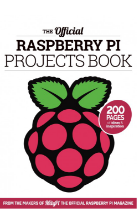

9 Best Practices For Efficient & Seamless Python-based Web Scraping


Web scraping is an invaluable skill in today's data-driven world. However, it must be performed responsibly and efficiently for optimal results. Here are our top 9 best practices that promise smooth execution of your upcoming web scraping projects.
Setting the Stage: Understanding Basic Rules of Python-based Web Scraping

Diving into web scraping can be a truly exciting venture, but it's crucial you understand the basic rules first, and have a handle on Python itself . Before coding your web scraping script in Python:
- Do enough research on the site or API you intend to scrape.
- Know what kind of data is available and how that data is structured.
- Analyzing websites also aids in understanding the HTML tags for effective extraction.
- Have clarity on whether your targeted site allows web scraping or not, as breaching terms may lead to legal issues later on.
Also consider performance factors like loading times, as efficiency isn't just about speediness, it's about making sure your process does not negatively affect the host server either.

Image Source: Pexels
Always Be Respectful: Adhering to Robots.txt for Ethical Scraping
Being ethical is as important in the web scraping world as it is elsewhere. One of the critical steps you need to perform before beginning your web scraping project is checking and adhering to a website's 'robots.txt' file. Here’s ours as an example.
This protocol allows websites to communicate directly with web crawlers, guiding them on what content not to scrape or specify delay timings between requests. Ignoring these instructions could lead not only to being blocked by the website but even facing legal repercussions.
By respecting a site's robots.txt rules, you ensure that your Python script follows best practices and maintains good internet citizenship.
The Power of Choosing a Good Parser
Choosing the right parser for your Python web scraping project is like choosing a Swiss army knife. A good parser makes navigating and searching through HTML or XML documents easier, more efficient, and effective. Python offers various parsers but remember that not all are created equal.
To make an informed decision, take into consideration:
- Speed: How quickly can it parse large volumes of data?
- Flexibility: Can it handle broken tags or other irregularities in the markup?
- Convenience: Does it provide helpful features such as an easy-to-use API?
Some popular choices include BeautifulSoup (BS4), lxml and html.parser which come with their unique features and limitations. Finding the suitable fit depends on your specific needs , so do trial runs until you find your sweet spot.

Image Source: Pixabay
Why Patience is Crucial: The Importance of Delays and Time Boundaries in Web Scraping
Web scraping requires a delicate balance, especially regarding the timing between your requests. Bombarding a website with continuous requests can be seen as hostile behavior or even result in suspected DDoS (Distributed Denial-of-Service) attacks, and potentially get you blocked from the site.
Here are some tips to help set suitable delays:
- Study Your Target: Optimal delay length varies depending on the website's size and server capacity.
- Night Owl Or Early Bird? Consider off-peak hours for larger jobs.
- Be Human: Randomize delays between each request to mimic human browsing behavior.
In short, patience pays dividends. Respecting the timing not only allows seamless execution but also establishes you as an ethical scraper who takes care of hosting servers' limitations.
Staying Anonymous: Utilizing Proxies in Your Scraping Process
In the realm of web scraping, flying under the radar is often beneficial. This is where proxies come into play. They essentially provide a disguise for your scrape requests by redirecting them through different IPs, which can significantly reduce chances of being blocked by anti-scraping measures.
One excellent way to manage this seamlessly is via data extraction services that offer integrated proxy rotation. For example, ZenRows offers data extraction with rotating proxies. This feature ensures every request appears as though it's coming from a distinct source, maintaining anonymity while keeping your scrapers running smoothly and efficiently.
While not all websites require the usage of proxies, having them as part of your toolkit helps you tackle more complex projects confidently and anonymously.

Image Source: Pixabay
`Try` Harder with Error Handling Techniques in Python
When a website unexpectedly changes its layout or server communication goes awry, your scraper can be left high and dry without a good error handling system. This is where the `try/except` block in Python truly shines, helping you anticipate potential issues and formulate responses to them.
Here are some specific strategies:
- Catching Specific Exceptions: Use `except
` to handle specific scenarios like data decoding errors. - Logging Errors: Write caught exceptions into local log files for future review.
- Re-running Failed Requests: In your exception handler, consider retrying failed scrape attempts after brief delays.
In essence, robust error handling keeps you one step ahead of problems. It’s useful to apply this approach to Python errors as well.
'Diving Deep': Mastering Recursive Scrapes Efficiently
Recursive scraping, or delving several layers deep into a website to extract information, is often required in comprehensive web scraping missions. But handling such tasks efficiently and responsibly comes with its own challenges.
Follow these pointers for effective recursive scraping:
- Limit the Depth: Define until which level you need to scrape data to avoid overburdening servers.
- Prioritize Key Pages: Strategy matters! Determine which pages have high value for your project needs.
- Crawl-Rate Speed Management: Adjust frequency of requests based on server’s feedback signals.
Keep in mind that using Python's multithreading functionality allows faster recursion but should be used cautiously so as not to overwhelm the target site. The overall aim should always be to extract maximum valuable data while causing minimum interference.
Storage Wisdom: Optimal Ways to Store and Manage your Data
Once you've successfully scraped data, the next challenge is managing and storing that information effectively. Given Python's versatility, different storage options can be used based on your project's needs.
Here are a few commonly used methods:
- Text Files: Simplest method, best for small data sets.
- CSV file: Convenient way to store structured tabular data.
- Databases (SQL or NoSQL): Ideal for complex projects requiring efficient querying and large storage capacity.
- Cloud Storage Options : Google Drive, AWS S3 etc. work well especially with big data handling.
Good organization of gathered data is crucial as it forms the basis of any further analysis or processing you might plan. Evaluate each option carefully, considering scalability, accessibility and cost implications of each choice before making a decision.
Clean-Up Operation: Sanitizing Your Data Post-Scrape
Once data has been scraped and stored, the final step often involves cleaning. This process, also known as data sanitization, ensures that your dataset is in a suitable pristine state for further use.
Here are some steps to keep in mind:
- Check for Duplicates: Duplicate entries can distort analysis results.
- Deal with Missing Values: Decide whether to interpolate missing values or remove instances completely.
- Formatting Finesse: Ensure consistent formatting across datasets (standardize date formats, string case sensitivity etc.)
- Confirmation of Relevance: Make sure each piece of gathered data serves a relevant purpose towards your end goal.
A well-cleaned dataset makes subsequent analyses more reliable and meaningful. Implementing thorough post-scrape clean-up operations will guarantee time well spent when you delve into your analytics later on.
Wrapping Up
Web scraping with Python, when done correctly and responsibly, can generate valuable results. By following these best practices, you'll not only be effective but also respectful of the web's ecosystem. Just don’t expect to master this skill overnight, and you’ll be setting yourself up for successful scraping ventures going forward.








 1 user
1 user






 Continue Wishlist
Continue Wishlist





 Getting Started Guide
Getting Started Guide
 Help Center
Help Center
 Contact us
Contact us
 Doist Blog
Doist Blog
 Privacy
Privacy
 Security
Security
 Terms of Service
Terms of Service
 What's new: Channel Descriptions
What's new: Channel Descriptions





 Python
Python ayeshayounas
ayeshayounas 0 Comments
0 Comments








 2.3k
2.3k
 953
953
 921
921
 2.1K
2.1K
 9 Best Practices For Efficient
Seamless Python based Web Scraping
9 Best Practices For Efficient
Seamless Python based Web Scraping

 Thursday, September 14, 2023
Thursday, September 14, 2023
























